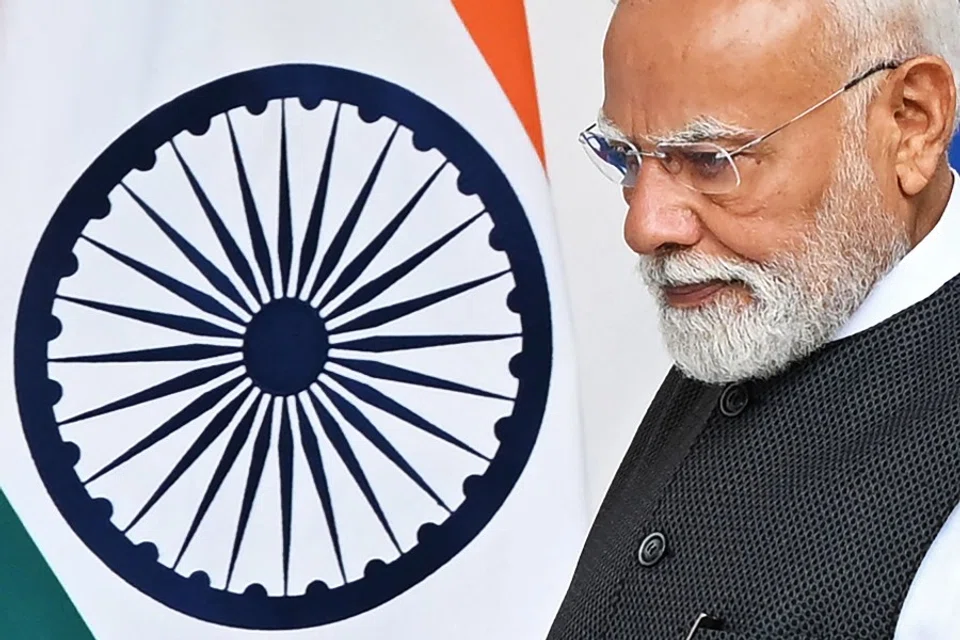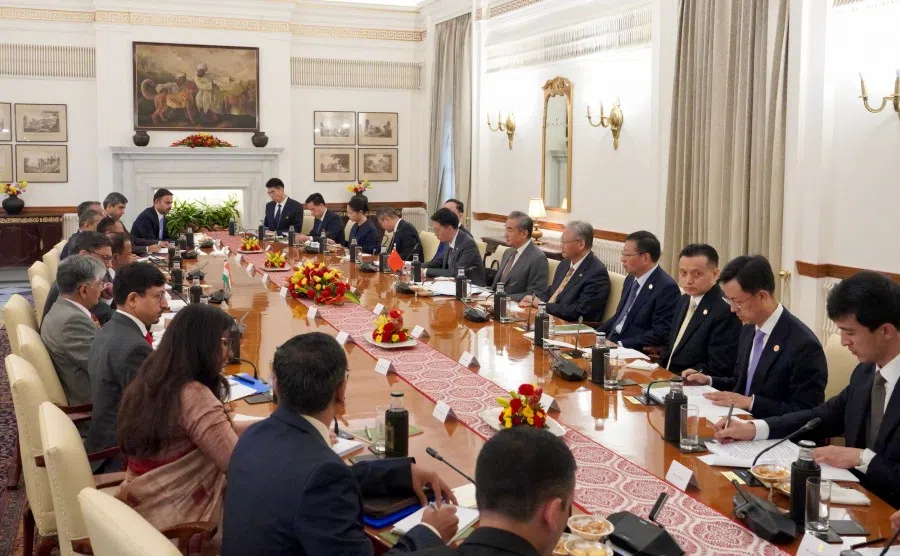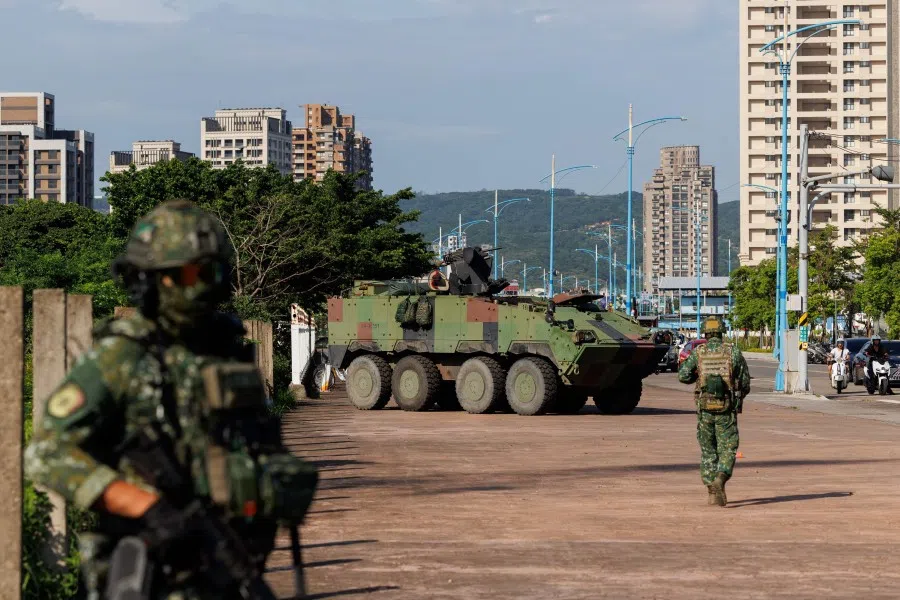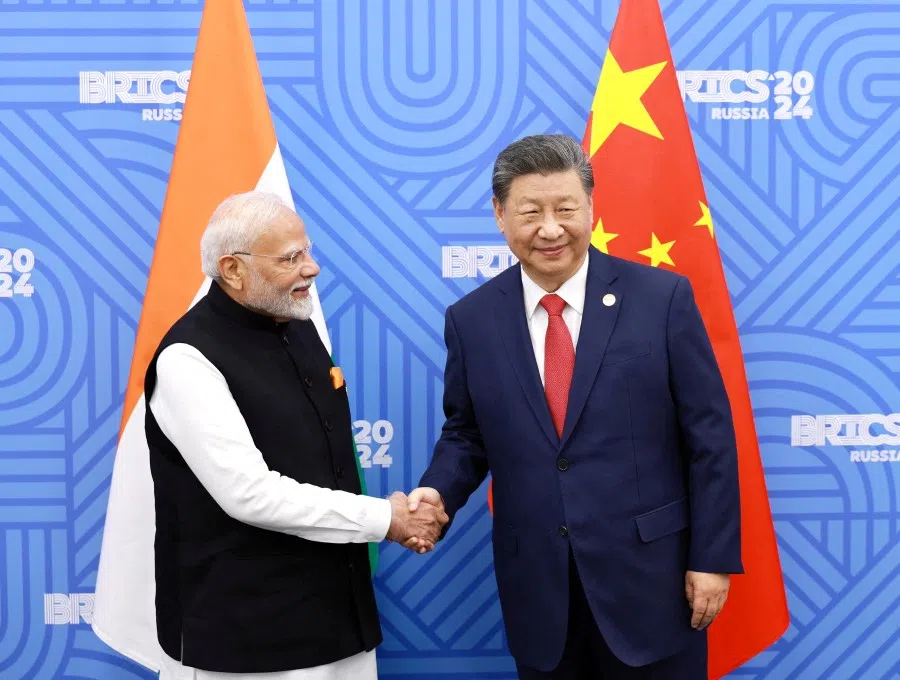Why China and India won’t join hands against the US
PM Modi’s China visit for the SCO summit, though not a formal bilateral trip, signals India’s intent to ease tensions with China — possibly to gain strategic leverage amid rising US tariff pressure and maintain a balanced foreign policy stance. Lianhe Zaobao correspondent Yu Zeyuan looks into the matter.

Indian Prime Minister Narendra Modi is set to make his first visit to China in seven years, attending the Shanghai Cooperation Organisation (SCO) summit from 31 August to 1 September. Can China-India relations emerge from the shadow of the past five years? The answer, unfortunately, may not be positive.
Breakthroughs in relations
The border dispute has long been the main issue troubling China-India relations. In 2017, Chinese and Indian troops faced off in the Doklam border area, causing severe tensions. In April 2018, Chinese President Xi Jinping and Modi held a cordial informal meeting at the East Lake in Wuhan, where both sides expressed the desire to maintain high-level strategic communication and properly manage differences, showing signs of improving relations.
However, in June 2020, a more serious clash broke out between China and India in the Galwan Valley along the border, resulting in casualties on both sides, and relations once again fell to a low point. In October 2024, Xi Jinping and Modi finally met again during the BRICS leaders’ summit in Kazan, Russia, where both reaffirmed their commitment to strengthening strategic mutual trust and expanding mutually beneficial cooperation, and it seemed that China-India relations had seen another turning point.
China-India relations have not yet recovered to the level where the two leaders can pay reciprocal visits.

Yet, border disputes between China and India have remained an unavoidable obstacle to improving bilateral ties. On 19 August, the 24th meeting between the Special Representatives on the China-India boundary question was held in New Delhi, where China’s politburo member and Director of the Office of the Central Commission for Foreign Affairs, Wang Yi, met with India’s National Security Advisor Ajit Doval to talk about the boundary issue and bilateral relations.
Both Wang and Doval considered the talks productive. Before the meeting, Doval formally announced that Prime Minister Modi would travel to China to attend the SCO summit, stressing that his talks with Wang carried special significance. He added that the Xi-Modi meeting in Kazan was a turning point in the improvement and development of bilateral relations, mutual perceptions between the two countries had undergone a positive shift, peace and tranquility had been maintained in the border areas, and there had been breakthroughs in relations.
On his part, Wang said that since the beginning of this year, China-India relations had developed steadily, with the border situation continuing to stabilise and improve. He added that China attaches great importance to Modi’s participation in the SCO summit in Tianjin, and looks forward to India contributing positively to the summit’s success.
Preserving status quo
Judging from the remarks of Doval and Wang, the main purpose of Modi’s upcoming trip to China is to attend the SCO summit, rather than to make a formal visit to China. In other words, China-India relations have not yet recovered to the level where the two leaders can pay reciprocal visits.
This shows that the two sides have not made significant progress in their negotiations over the boundary issue; rather, they are striving to preserve the status quo, with a final settlement still far off.

On the thorny issue of the border dispute, Wang and Doval reiterated that the Special Representatives’ Meeting mechanism would be fully utilised, and that both sides would seek a fair, reasonable and mutually acceptable framework for resolving the boundary question in accordance with the political guiding principles agreed by the two countries in 2005. At the same time, they pledged to strengthen regular border management and jointly maintain peace and tranquility in the border areas. This shows that the two sides have not made significant progress in their negotiations over the boundary issue; rather, they are striving to preserve the status quo, with a final settlement still far off.
As for the “10 positive outcomes” reached between Wang and Doval, apart from supporting each other in hosting the SCO summit and the BRICS leaders’ meeting, the concrete measures include the early resumption of direct flights between mainland China and India, offering mutual visa facilitation, and continuing to arrange for Indian pilgrims to travel to Tibet’s sacred Mount Kailash and Lake Manasarovar. These steps can be taken sooner or later, but they are unlikely to significantly improve the substance of bilateral ties.
Moreover, in the Chinese Foreign Ministry’s press release on Wang’s meeting with Indian Foreign Minister S. Jaishankar, it quoted Jaishankar as saying that Taiwan is a part of China — a statement the Indian side later said was “misquoted”. New Delhi stressed that India’s position on the Taiwan issue had not changed and that it would continue advancing economic, technological and cultural cooperation with Taiwan. This, of course, has left China quite displeased.
Many believe that India’s recent willingness to mend ties is intended to use rapprochement with China as leverage to counter US tariff pressure on India.

During a regular press conference on 21 August, Chinese Foreign Ministry spokesperson Mao Ning said that China was surprised by India’s “clarification”, stressing that this was inconsistent with the facts. Mao stated, “It would seem that some people in India have tried to undermine China’s sovereignty on the Taiwan question and impede the improvement of China-India relations. China expresses serious concern and firmly opposes that.
“Let me stress that there is but one China in the world, and Taiwan is an inalienable part of China’s territory. This is a prevailing consensus among the international community, including India. We hope India will earnestly abide by the one-China principle, properly handle sensitive issues and promote the steady development of bilateral relations.”
From Beijing’s perspective, India is going back on its word, and bringing up China’s most sensitive issue — Taiwan — is a clear provocation.
India, for its part, made only limited comments on the matter, unwilling to stir up more trouble ahead of Modi’s trip to China.
Why should China cooperate with India?
Chinese public opinion is also generally pessimistic about Modi’s visit to China bringing real improvement in bilateral relations. Many believe that India’s recent willingness to mend ties is intended to use rapprochement with China as leverage to counter US tariff pressure on India.
New Delhi might lean towards Beijing. However, if the US eases its position, India could quickly reaffirm its allegiance.

Jin Canrong, a professor at Renmin University of China, recently wrote that China will not join hands with India to counter the US. When it comes to strategic competition with the US, China has always relied on itself. For example, on tariffs, China forced the US to come to the negotiating table on its own strength. China has sufficient confidence that it can counter the US independently, without outside help. For India, even a slight softening of Trump’s stance would likely be met with a warm welcome, quickly revitalising US-India ties. This raises the question: why should China choose to cooperate with India? India’s hope of using China against the US is nothing but wishful thinking.
Influential Chinese internet commentator “Jiubian” (九边) recently noted that India has once again extended olive branches to China. Unsurprisingly, this is to give itself bargaining chips in negotiations with the US, signalling that if Washington continues to be tough, New Delhi might lean towards Beijing. However, if the US eases its position, India could quickly reaffirm its allegiance.
After all, India and the US are not adversaries, do not share a border, and the US is a major customer for India. For China, by contrast, India will remain a potential rival and imagined enemy for a long time to come.
This article was first published in Lianhe Zaobao as “莫迪访华难以改善中印关系”.



![[Big read] When the Arctic opens, what happens to Singapore?](https://cassette.sphdigital.com.sg/image/thinkchina/da65edebca34645c711c55e83e9877109b3c53847ebb1305573974651df1d13a)
![[Video] George Yeo: America’s deep pain — and why China won’t colonise](https://cassette.sphdigital.com.sg/image/thinkchina/15083e45d96c12390bdea6af2daf19fd9fcd875aa44a0f92796f34e3dad561cc)
